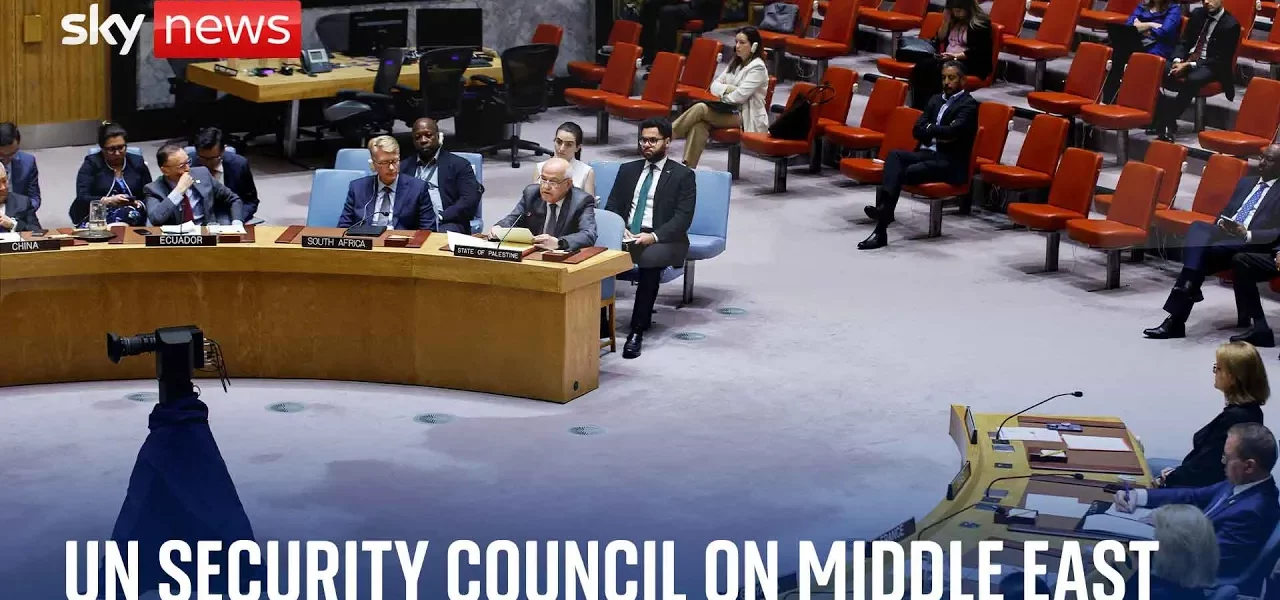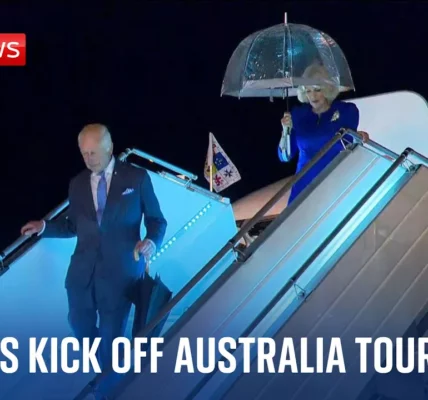Security Council Meeting: Situation in the Middle East

This article provides a comprehensive analysis of the 9,712th Security Council meeting, focusing on the situation in the Middle East, particularly the escalating tensions along the Blue Line between Israel and Lebanon, and the implications of the recently adopted resolution 2749.
Introduction
The 9,712th meeting of the United Nations Security Council convened to address the pressing situation in the Middle East, specifically concerning the ongoing tensions between Israel and Hezbollah along the Blue Line. The meeting saw representatives from various countries articulate their concerns and proposals aimed at de-escalating the situation. The adoption of resolution 2749, which extends the mandate of the United Nations Interim Force in Lebanon (UNIFIL), was a focal point of the discussions, reflecting the international community’s commitment to maintaining peace and security in the region.
Overview of the Meeting
Provisional Agenda and Participation
The meeting was called to order with the provisional agenda focusing on the situation in the Middle East. The agenda was adopted in accordance with the Council’s provisional rules of procedure, allowing representatives from Israel and Lebanon to partake in the discussions. This inclusion was crucial as both nations are directly affected by the ongoing hostilities.
Draft Resolution and Key Documents
Members of the Council were presented with document S/2024/634, containing the draft resolution submitted by France. Attention was also drawn to document S/224/567, a letter from the UN Secretary-General addressed to the Council’s president, which highlighted the urgency of the situation.
Key Issues Discussed
Tensions Along the Blue Line
The representatives expressed deep concern over the heightened tensions along the Blue Line, emphasizing the risk of open warfare. Several key points were raised regarding the ongoing military actions by Hezbollah, which have significantly destabilized the region. The representatives highlighted the following:
- The need for de-escalation of hostilities and the importance of maintaining a cessation of violence.
- The role of Iran in supplying Hezbollah with military resources, which exacerbates the conflict.
- The impact of the ongoing situation on the civilian populations in both Israel and Lebanon.
The Role of UNIFIL
UNIFIL’s mandate was a significant topic of discussion, with several representatives underlining its importance in monitoring activities along the Blue Line and facilitating humanitarian access. The extension of its mandate was seen as essential for:
- Ensuring stability and peace in the region.
- Supporting local communities through humanitarian assistance.
- Preventing further escalation of violence by monitoring compliance with international laws.
Statements from Member States
France’s Position
The representative of France articulated the need for collective action to avoid regional destabilization. France emphasized the necessity of a comprehensive approach that includes diplomatic efforts alongside military considerations.
United States’ Concerns
The United States expressed strong support for Israel’s right to defend itself against Hezbollah’s attacks. The U.S. representative highlighted the following points:
- The continuous threat posed by Hezbollah to both Israeli and Lebanese civilians.
- The necessity of reinforcing UNIFIL’s capabilities to monitor and report on the situation effectively.
- The need for a comprehensive peace agreement that includes mechanisms for implementation.
Statements from Other Member States
Other nations, including the United Kingdom, Malta, Slovenia, and Algeria, echoed similar sentiments regarding the importance of UNIFIL and the urgent need for de-escalation. Concerns were raised about the humanitarian impact of the ongoing conflict, and diplomatic solutions were encouraged as the primary avenue for resolution.
Conclusion
The 9,712th Security Council meeting underscored the dire situation in the Middle East, with representatives emphasizing the urgent need for collective international efforts to restore peace and stability. The unanimous adoption of resolution 2749 reflects a commitment to supporting UNIFIL in its mission to maintain security along the Blue Line. Moving forward, it is crucial for all parties to engage in diplomatic dialogues and uphold international law to prevent further escalation of hostilities. The international community must remain vigilant and proactive in addressing the challenges posed by armed groups in the region.
For more information on the implications of this meeting and related topics, visit our articles on UN Peacekeeping Efforts and Middle East Tensions.
“`




